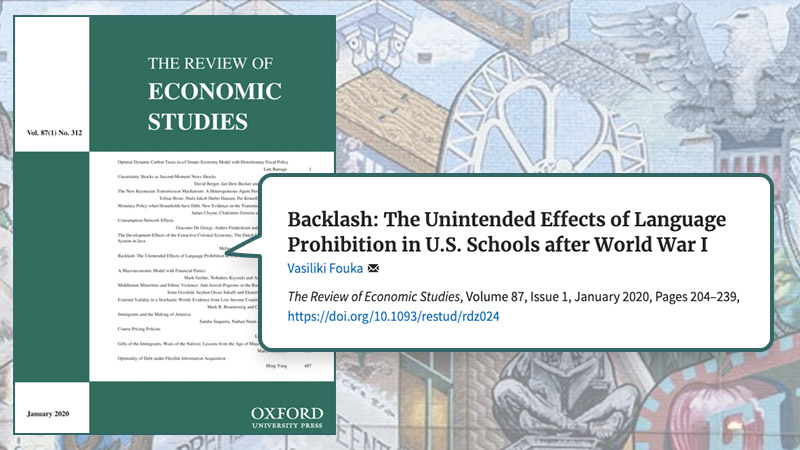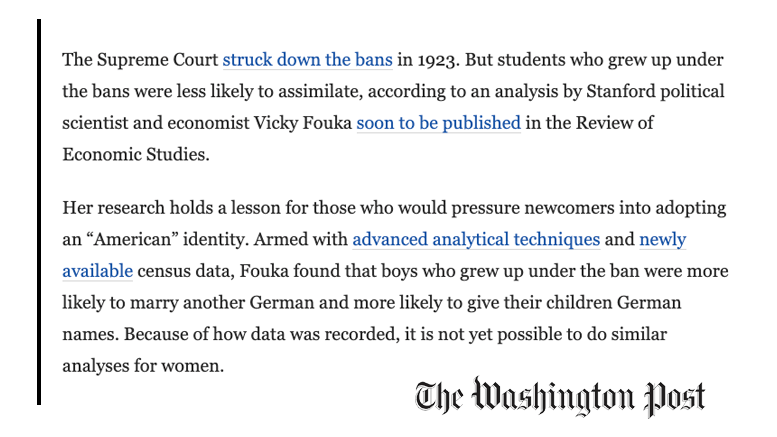
The paper Backlash: The Unintended Effects of Language Prohibition in U.S. Schools after World War I by Economics alum Vicky Fouka ’10 has been published in the Review of Economic Studies (REStud).
Her research on the topic was also featured in The Washington Post last year!
Paper abstract
Do forced assimilation policies always succeed in integrating immigrant groups? This paper examines how a specific assimilation policy – language restrictions in elementary school – affects integration and identification with the host country later in life. After World War I, several US states barred the German language from their schools. Affected individuals were less likely to volunteer in WWII and more likely to marry within their ethnic group and to choose decidedly German names for their offspring. Rather than facilitating the assimilation of immigrant children, the policy instigated a backlash, heightening the sense of cultural identity among the minority.

The Washington Post. May 11, 2019.

Vicky Fouka ’10 is Assistant Professor of Political Science at Stanford University. She is an alum of the Barcelona GSE Master’s in Economics and earned her PhD in Economics at GPEFM (UPF and BGSE).
